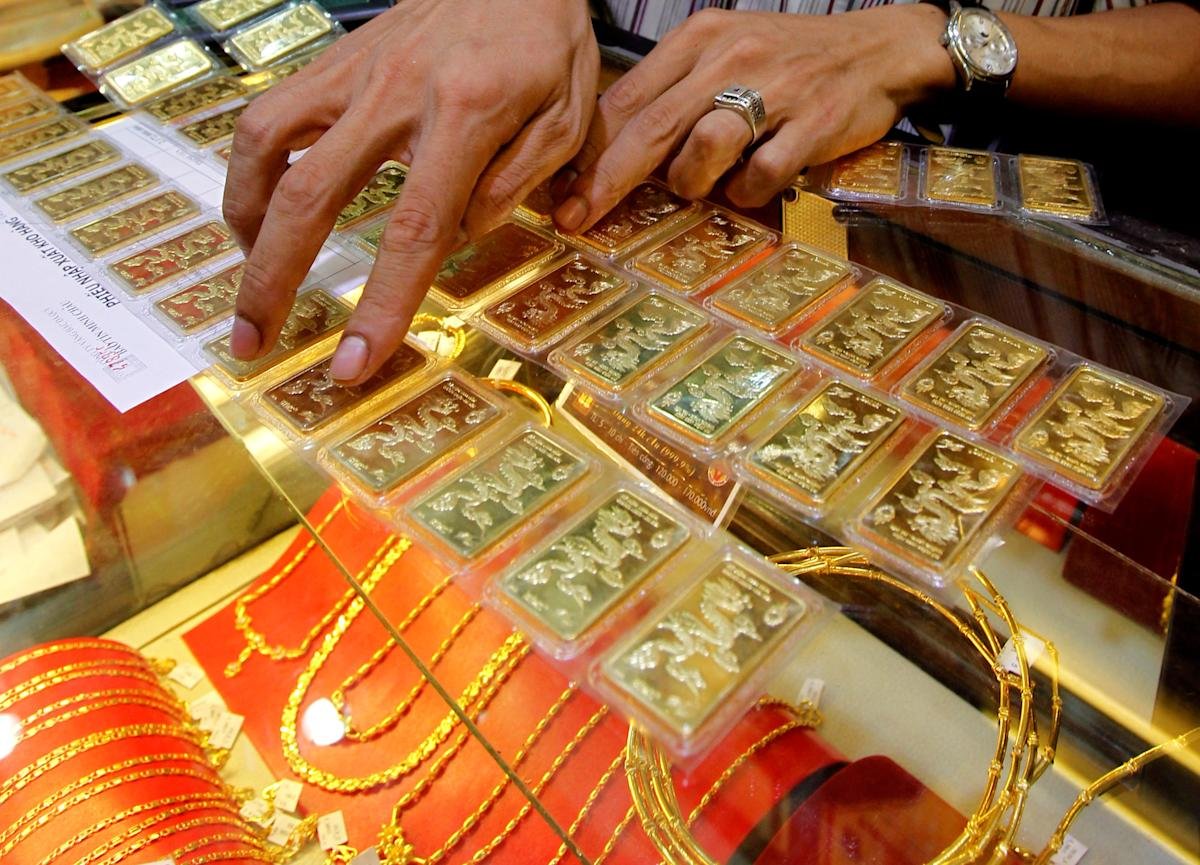Gold prices inched higher on Monday morning, and continue to trade near all-time highs, with weakness in the dollar offering support to the precious metal.
Gold futures (GC=F) were up 0.2% at $3,293.30 an ounce at the time of writing, while the spot gold price climbed 1.4% to $3,286.03 per ounce.
Meanwhile, the US dollar (DX-Y.NYB) index, which measures the greenback against a basket of six currencies, was down 0.2% to 97.17.
Gold tends to have an inverse relationship to the dollar, as it is typically traded in the US currency, so weakness in the greenback makes the precious metal cheaper for overseas buyers.
Read more: FTSE 100 LIVE: Markets higher as US-UK trade deal comes into force
The rise in gold prices came despite more positive developments on trade, with investors typically turning to the precious metal as a safe-haven amid uncertainty.
Susannah Streeter, head of money and markets at Hargreaves Lansdown, said: “Exuberance is set to continue at the start of the week, as more trade deal scores are on the doors and geopolitical tensions have eased off.
“Talks between Canada and the US are back on the cards, after an agreement to scrap a tax targeting American tech firms,” she said. “There will now be speculation that other countries, like the UK, will be forced to drop their own taxes targeting the biggest tech firms in the world when further talks take place.”
Streeter added: “The trade deal announced again between the US and China, has poured more optimism into glass half full attitudes. Even though it’s still pretty scant on detail, the agreement looks set to give US companies better access to crucial rare earth minerals, exported from China.”
The pound dipped 0.1% lower against the dollar (GBPUSD=X) on Monday, to trade at $1.3694, as investors weighed the latest UK economic data releases.
The Office for National Statistics (ONS) confirmed a preliminary estimate that the UK economy expanded by 0.7% in the first three months of the year
However, the household savings ratio, a measure of how much people save, fell for the first time in two years, to 10.9% from 12%, as people spent more on fuel, rent and restaurant meals.
Danni Hewson, head of financial analysis at AJ Bell (AJB.L), said: “Confirmation that the UK economy delivered the fastest growth of any G7 country at the start of the year feels almost redundant.
Read more: Trending tickers: Palantir, Boeing, UBS, WH Smith and Hikma Pharmaceuticals
“A mix of tariff woes and tax hikes have created a period of such uncertainty and instability that many businesses have simply pressed pause on their future plans, and in some cases taken the decision to cut labour costs in order to set them up for what might be down the tracks.”




